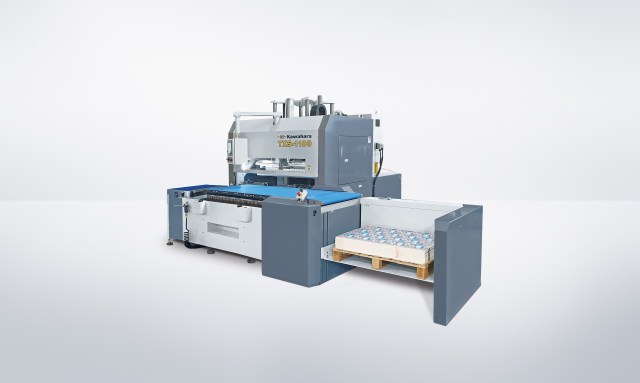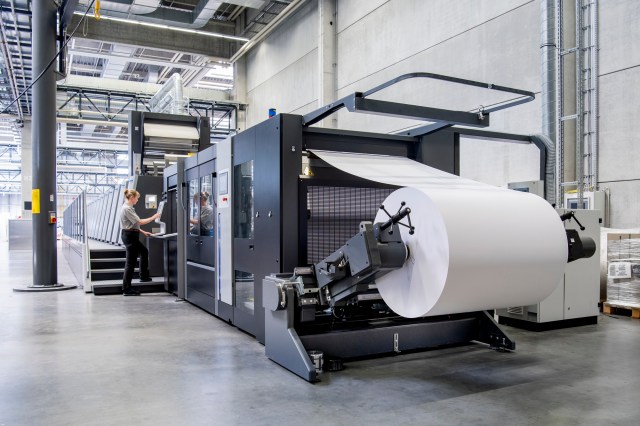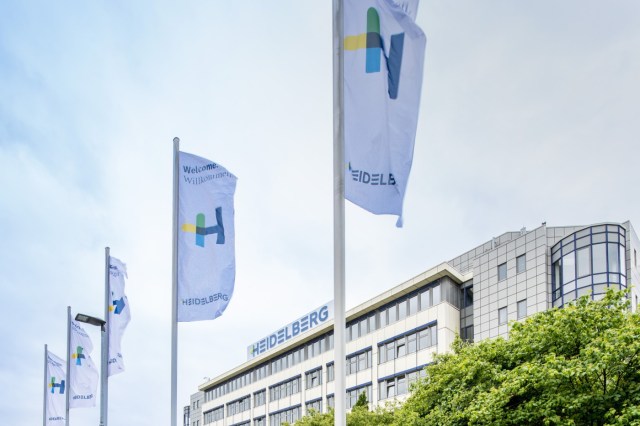
As part of the celebrations marking the 175th anniversary of Heidelberg, the company hosted a panel of experts from international packaging companies, industry associations, and the commercial and technology sectors, with the speakers finding “excellent potential” for carton manufacturers.
The “Packaging Tomorrow” symposium addressed what the future holds for packaging printing, identifying the promising business options for folding carton manufacturers as a result of the global trend toward fibre-based packaging and the growing importance of creative packaging at the point of sale.
Heidelberg chief technology and sales officer Dr. David Schmedding said, “Our ‘Packaging Tomorrow’ symposium has shown that the future of packaging printing is highly automated, autonomous, sustainable, and customised.
“This opens up huge opportunities for folding carton manufacturers. Companies that invest in creative design, smart automation, and eco-friendly solutions will be among the market winners.”
The panellists also spoke about the far-reaching economic and societal changes impacting point of sale.
According to the panel, society is becoming increasingly heterogeneous. In Europe, for example, there is growing divergence between the needs and purchasing behaviour of today’s pensioners and those of Generation Z.
With the traditional weekly shop in decline and people shopping more often but buying less and making spontaneous purchases, the panel said the moment at which the purchasing decision is made is the “moment of truth” – and this truth is increasingly being determined by the design of the packaging.
They found it relies on the emotional pull of the packaging, which is why it is becoming an ever more important competitive factor for consumer goods manufacturers.
Another reason for its growing significance is the global trend toward consumers being less inclined to stick to certain brands.
Considerable competitive pressure, impulsive purchasing decisions, and the high level of readiness to make a change all mean that using creative and innovative packaging to attract attention at the point of sale will become ever more important for consumer goods manufacturers, they said.
The experts’ message is that the demands on the printing industry are growing along with these challenges.
Not only is packaging becoming ever more sophisticated – innovation cycles are also getting ever shorter. The trend toward smaller but more frequent shops is also changing both the volumes being ordered and ordering cycles.
Batch sizes are shrinking, and timings are getting tighter. As a result, the panel said packaging printers will increasingly need to adapt to even more frequent job changes.
One important task when designing packaging will be to draw the young generation in particular back to the physical point of sale in shops. They said it’s because young people currently make many of their purchases online, where packaging tends to play a less important role in the purchasing decision.
The panel also spoke about the escalating amount of packaging coming into circulation worldwide, adding that it means a significant impact on the environment.
They said folding carton manufacturers that make products for use within the European Union are facing particular challenges in the medium term due to the EU Packaging Directive, which stipulates that all packaging should be recyclable by 2030, thereby cutting CO2 emissions significantly.
The symposium participants agreed that this requirement will offer packaging printers huge opportunities, but also that these businesses cannot meet this challenge alone – everyone throughout the entire packaging value chain will need to work together on solutions. This not only includes manufacturers of printing substrates such as paper, foils, and films, but also companies making inks, coatings, and adhesives.
In addition, at the very start of the process, packaging designers and consumer goods manufacturers need to get on board. The panellists agreed that with everyone involved, including folding carton printers, the industry has an excellent opportunity to win additional orders, while also making a valuable contribution to reducing environmental pollution and achieving climate goals.
Lastly, the topic of big data and artificial intelligence creating the platform for autonomous packaging printing also arose.
The message from the panellists was that data is key. Whereas folding carton printers used to be typical manual workers, growing automation is now transforming the companies where they work into businesses with largely autonomous operations.
For these businesses to become “learning organisations” like companies in other sectors, they said a strong digital data basis is essential. Especially in times when runs are getting shorter, job changes more frequent, and timings and delivery deadlines tighter, they found it makes reliable planning and optimum processing of print jobs easier.
According to the panel of experts, artificial intelligence tools are opening whole new dimensions. Digital twins that map products and processes on a 1:1 basis in a digital world are playing a key role in this context. By continuously sharing data, the two worlds are optimising workflows, predicting potential faults or more serious failures, and thus making packaging printing a whole lot more efficient.


